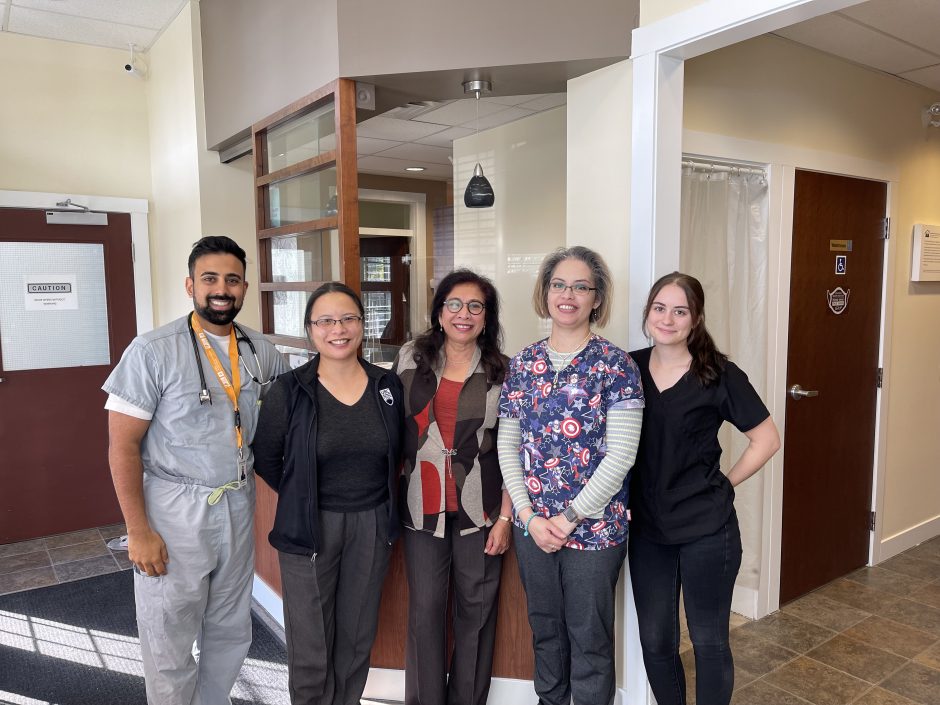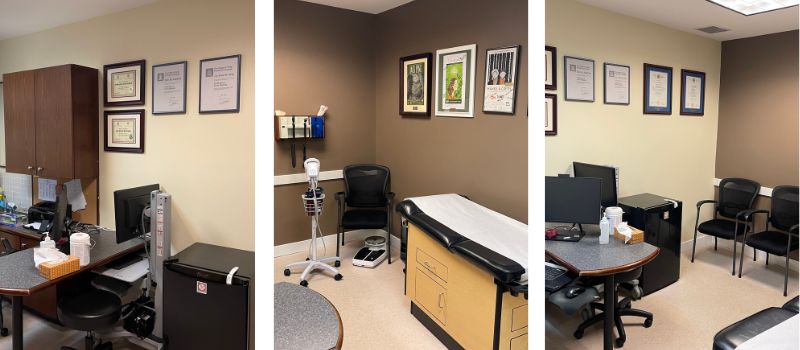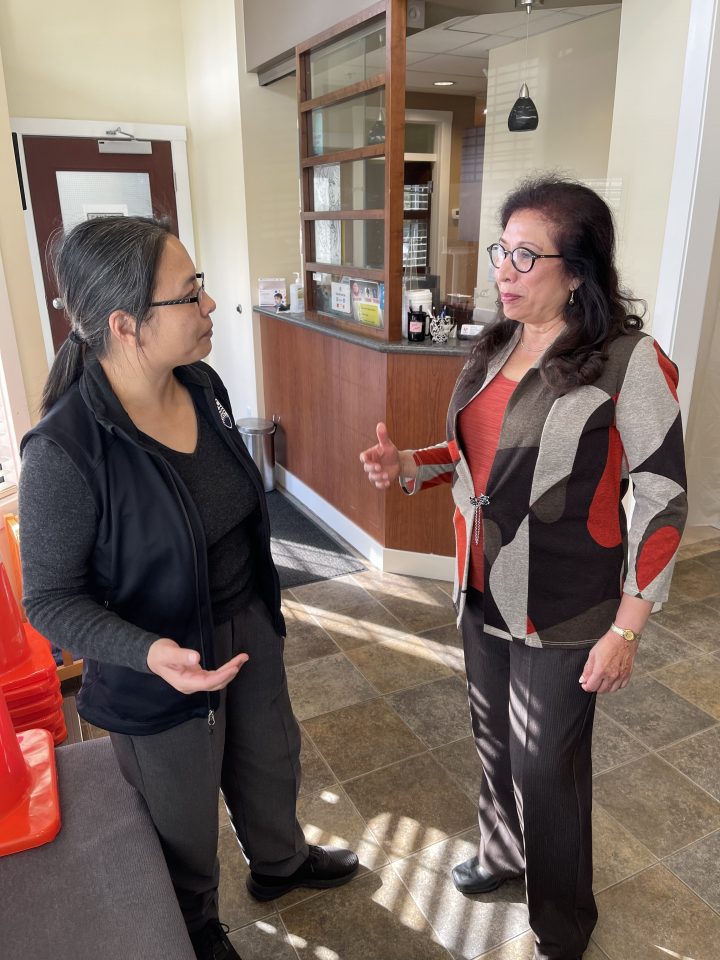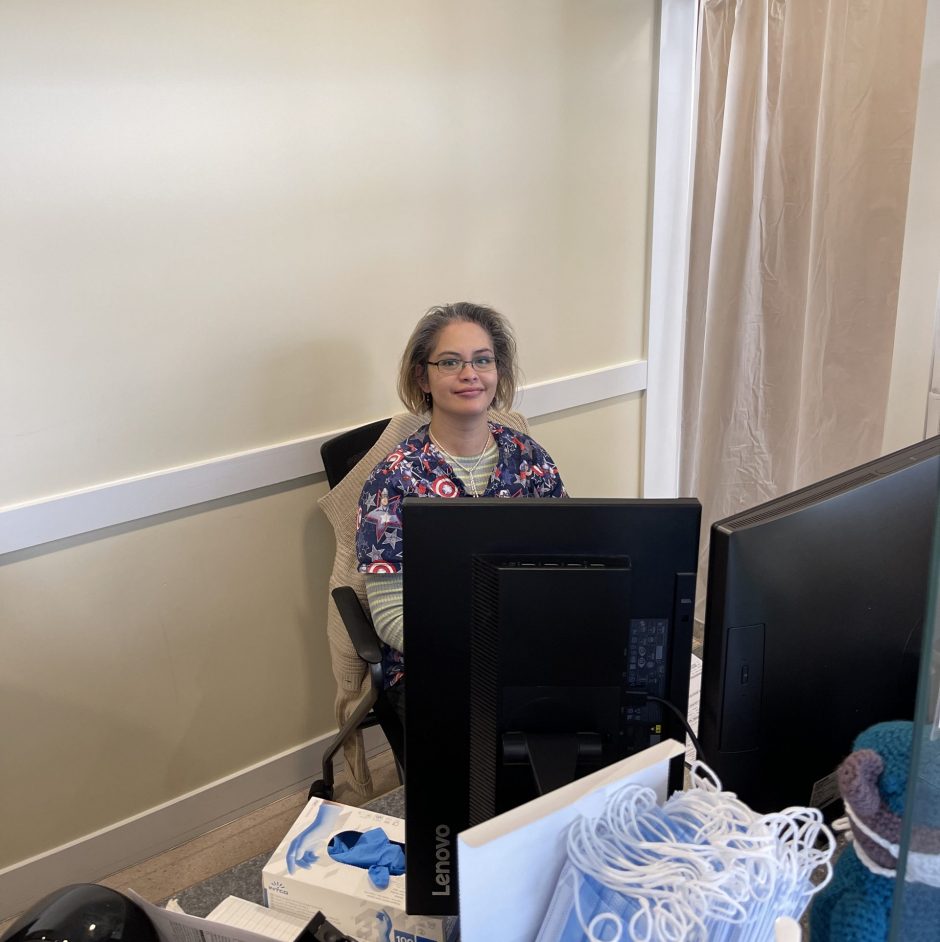Part two in a profile series on the TPCLC project participants.
Team-Based from the Beginning

When Drs. Leo and Flora Wong opened the doors to their practice, they informed patients of their team approach to care. They didn’t struggle to find patients who were comfortable seeing two physicians. Operating as a dyad from the beginning made them no strangers to working as a team. Since then, the St. Luke Family Practice clinic has grown with an increased number of care providers, and has become an established education environment for undergraduate and postgraduate learners. The St. Luke team provides full-scope family practice care, in-hospital care, palliative and hospice care, home visits, obstetrics and psychiatric community rehabilitation.
MOAs: The First Point of Contact
When St. Luke opened, there was one MOA. Demand increased over the next four months, so another person was hired for work beyond the usual scope, such as providing standardized cognitive assessments. Not only are they the first point of contact for patients, they also take height and weight measurement, and blood pressure, often encouraging residents to do the same. Collaboration like this defines team-based care. According to Flora, MOAs Sheila, Carol, Colleen and Destiny “know what’s up.” They organize rooms and keep things moving to ensure that patients are getting care in a timely fashion, and that physicians are able to stay on top of things.
When it comes to engaging with the rest of the team, the MOAs coordinate which patients are seen by residents, and what is needed in the way of supplies and time for visits. They take the lead on communicating with learners and residents. They’ve seen a variety come through the doors and understand how they work, when they might need more time and what needs to get done to improve their experiences at St. Luke.
Sharing Space with a Nurse Practitioner
Five years ago, the Langley Division of Family Practice and the Fraser Health Authority needed a clinic to house the office of a nurse practitioner. Since then, St. Luke has shared space, community and ideas with NP Mika Nonouchi.
Mika’s work is outreach based, but her office is in the clinic. With that physical space available she is able to follow up and get opinions from Leo as needed. Her weeks are divided between overnight shelters, St. Luke, educational time and a high school—making her an expert in community care needs.
Mika loves working with the team at St. Luke, whether it’s for support with challenging cases or consultation on med management. There is plenty of wisdom and expertise to be shared. Leo also agrees that it is helpful to sit down and discuss cases and what can be done to care for people. In some cases, they have involved residents, especially if they are interested in mental health, addiction or poverty. Mika is encouraged by St. Luke’s participation in this kind of care, and hopes to get more physicians interested in this area. She also interacts with pharmacists and non-profit organizations and speaks with primary caregivers when she works in the high school.
When it comes to working in a team-based setting, communication is key. It’s not just allied health professionals, but specialists in housing, income and poverty who need to be included as well.
“Team-based care is necessary because of how complex current medicine is, especially when it comes to social determinants of health outcomes.”
Mika Nonouchi
Facilitating Teamwork
St. Luke has prioritized incorporating technology to improve communication and patient care and intentional use of clinic space since its inception.

The physicians at the clinic get two rooms—each fully equipped and self-contained with the tools and technology required to work effectively. This makes training and accommodating residents easier as the doctors can move rooms and still have everything they need to provide a high standard of care. In addition to the rooms, there is a shared space with desks for more face time. Space like this allows for free flow of information sharing and staying connected as much as possible.
In person communication is important, but being able to work virtually is just as valuable. Leo has always been forward thinking when it comes to technology in family practice. When the practice opened, electronic medical records (EMRs) were getting off the ground. It was something that Leo wanted to push to make everyone’s lives easier—physicians, MOAs and ultimately, patients. As Flora puts it, “Leo has always been ahead of the wave in terms of EMR and learning models.” They can access records and work away from the office without negatively impacting patients.
Education at St. Luke

In 2007, St. Luke began taking on UBC medical students—their first exposure to teaching. A few years after that the residency program in nearby south Surrey began, and they’ve been involved in teaching residents ever since. In fact, one of the first residents they took on was Dr. Jeff Plante of Langley City Family Practice—the first clinic we profiled for the project.
All of the doctors at St. Luke teach medical students and residents. In addition to teaching, Flora has taken on leadership positions in resident education and faculty development. She was interim co-site director of Surrey South Fraser and took all of the opportunities she was offered, including presenting a series of workshops that the division sponsored. Flora has spoken on topics about giving feedback, residents in difficulty, setting up a practice and general teaching. It is important to her to teach, not to lecture. To Flora, the divisions have been wonderful in their support for such events and workshops. This kind of development builds up the teaching community and further connects the primary care network. It also goes to show that residents at St. Luke are learning from the best.
The Resident Experience
Training residents in team-based care is a key aspiration of the TPCLC project. Over the past five months, St. Luke has had three residents at any given time, one of whom is Dr. Elizabeth Han. Like many of them, Elizabeth is drawn to family practice because she likes the idea of building longitudinal relationships with patients from cradle to grave. In her experience at St. Luke during the TPCLC project, she has seen firsthand how the clinic has a vision of how to train residents in a new way with interprofessional care.
Elizabeth has a disability, something she says has been well-accommodated during her rotation at St. Luke. Having this support ensures she is in a good place to help other people. Both Leo and Flora tailored her experience to cater to her interests such as preventative health, and taught her in multimodal ways. She has had the opportunity to think through cases with NPs and pharmacists, learning her firsthand how team-based care works.
At the time, she wasn’t aware of TPCLCs—but participating in a team-mapping session for the project taught her a lot about them. One requirement of the TPCLC project is that clinics participate in team mapping sessions. These sessions help identify roles and see where the clinic is doing well to be equal partners in the delivery of care. They provide an opportunity to see where there can be fewer errors and less paperwork, making life easier for staff and patients.
“Team mapping helped me to become less shy, the more we do it the more we’re empowered to speak up.”
Dr. Elizabeth Han
How Patients See Things

Long-term patients at St. Luke have taken note of the TPCLC project and are keen to tell the team about the good experiences they have had with this model. They appreciate the extra time with residents, and in some cases have become enthusiastic teachers providing valuable feedback. Patients get more time to tell their stories, to be heard and to be taught about their conditions and medication.
Living the Future of Family Practice
Team-based care has informed the St. Luke approach to patient care since its inception. This made the clinic the ideal inaugural candidate for the TPCLC project. The TPCLC has benefited from the established team culture at the clinic, and the additional support the project brings for intentional teaching has been appreciated by care team members, residents and patients.
Flora Wong says team-based care is “the future, the ideal.”
Mika Nonouchi emphasizes that “without team-based care, primary care is not going to work.”
The exciting thing about St. Luke is that this approach to patient care and medical education isn’t waiting for tomorrow, it’s happening today.